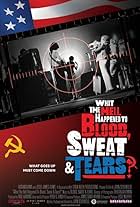The history of legendary rock band Chicago is chronicled from their inception in 1967 all the way to the present.The history of legendary rock band Chicago is chronicled from their inception in 1967 all the way to the present.The history of legendary rock band Chicago is chronicled from their inception in 1967 all the way to the present.
- Awards
- 4 wins total
James Pankow
- Self
- (as Jimmy Pankow)
Peter Cetera
- Self
- (archive footage)
Terry Kath
- Self
- (archive footage)
James William Guercio
- Self
- (archive footage)
Bill Champlin
- Self
- (archive footage)
Dawayne Bailey
- Self
- (archive footage)
Featured reviews
I saw this over the weekend and really liked it. I learned some things about Chicago and it's journey that I never knew before. I thought I already knew a lot but there was some good stuff here. My only concern is that this is produced by the band and directed by Lou Pardini's family member so it is not going to be completely objective. At the end of the day Chicago is a great band with a lot of big egos. The remaining members seem to down play Cetera's ability as a song writer and his contributions. Cetera is an excellent song writer and had one of the best voices in the business. Clearly Foster took them in a different direction but it seemed like it was a good decision at the time. The really needed a change up in my opinion. I am disappointed Cetera couldn't check his ego at the door and perform at the Hall of Fame. That would have been amazing. I also thought Bill Champlin was overlooked in the movie. I know he didn't want to participate but the founders acted like he didn't have much to offer. Interesting that since this documentary was made that Jason Scheff was also fired. So other than Lamm, Pankow, Loughnane, and Parazaider. Chicago will always be my favorite group but it is too bad that all of the ego's ended up crushing the stage.
I can see where some of those familiar with the history of the band Chicago might take issue with how the documentary was presented. While most of the documentary seemed reasonably accurate, there were a few of the stories that didn't seem to jibe with what I remember. Specifically the departure of drummer Danny Seraphine.
For those unfamiliar with Chicago, this documentary is useful for bringing those viewers up to speed. From their beginning to their induction into the Rock and Roll Hall of Fame, viewers are able to get an idea how the band has evolved over the last 50 years.
I would highly recommend this documentary to anyone who wants to know who the band Chicago is.
For those unfamiliar with Chicago, this documentary is useful for bringing those viewers up to speed. From their beginning to their induction into the Rock and Roll Hall of Fame, viewers are able to get an idea how the band has evolved over the last 50 years.
I would highly recommend this documentary to anyone who wants to know who the band Chicago is.
I was happy for the forthrightness of all those who participated in this. Sad that Donnie Dacus, Bill Champlin, and Peter Cetera decided not to be part of it. I think their honest recollections and opinions would have been portrayed (the guys don't hold back on talking about reckless behavior and squabbles, and David Foster's ego is not tempered one bit). The best part was the proper due given to Chris Pinnick. I did not know his tenure lasted beyond the making of the 14th album. Great. But not a word - not one single word - about Laudir de Oliveira. He was a fulltime band member from '75 to '82, and even participated in the studio for a couple of years before attaining that status. Sad to say he passed away about six months ago, only the second Chicago member to be gone. I know there's only so much time in a documentary, and only so many things to be covered, but come on - he was a full-on band mate and should have his due.
This is a film made by the remaining members of the Chicago. The first half will thrill any Chicago fan, great live performances, the stories behind some iconic Chicago tunes, a wonderful tribute to Terry Kath, but as the movie progresses, the band felt the need to trash most former members. This is a shame because the music they made was special and while the remaining members put on a good live show, the music made since Danny, Peter and Bill left does not live up to the legacy they ALL created! I think it was very classy of Danny to be interviewed but Bill, Peter and JWC have all been conspicuously absent from the band recently and it says a LOT that they refused to participate in the film.
Like the band's musical legacy, the first half of the film is a solid 10, the second half, is a lackluster 2.
Like the band's musical legacy, the first half of the film is a solid 10, the second half, is a lackluster 2.
I'm a huge fan of the band Chicago, mainly of the 1968-1978 output. The combination of jazz, rock and pop was uncanny, and the band wasn't afraid to try out new things that were uncomfortable at times. I was looking forward to this documentary, to learn about the various band members, the different variations of the band and how some of their big songs were composed. What we get instead is a biased view from the four remaining original members, who seem defensive of where they are today.
I enjoyed the tribute to Terry Kath, easily the heart and soul of this band, whose death changed everything. The man was a guitar legend, and seemingly underrated compared to most of this time frame. Jimi Hendrix himself called him the best guitar player of the time, even better than himself! Kath also had a soulful growl, similar to Ray Charles, that gave their sound an R&B flavor. It was fun to learn about the early days, from forming in the namesake city to moving out to L.A. living in squalor to creating albums at a retreat in Colorado, where anything and everything was allowed (sex, drugs, rock and roll). However, we lose Kath to a gun accident, and the band never fully recovered. They lost their label and their direction. Eventually, they would get resigned and start working with David Foster. This period is very polarizing to fans. Some think this was Chicago at their best, others thought the band was too slick, too focused on ballads and Peter Cetera. Danny Seraphine admitted he was the one who pushed them towards Foster, and Foster even admits he might have changed the band too much. Lamm considered leaving the band at this time, and Cetera soon would when the band wouldn't allow him time to work on a solo album. Shortly after, Seraphine would get canned when his drumming deteriorated due to his focus on the more managerial aspects of the band. The four others don't seem to have nice things to say about Cetera or Seraphine. They say Cetera "wasn't that important" to the band, regardless of the fact he was one of their main lead singers and created many of their important singles. They make Seraphine's replacement seem like such a better drummer, which is completely false. These remaining members seem bitter and grumpy about things, and it's really too bad.
The better name for this film should have been "how a great band turned into an oldies act and can't let go of things." Disappointing.
I enjoyed the tribute to Terry Kath, easily the heart and soul of this band, whose death changed everything. The man was a guitar legend, and seemingly underrated compared to most of this time frame. Jimi Hendrix himself called him the best guitar player of the time, even better than himself! Kath also had a soulful growl, similar to Ray Charles, that gave their sound an R&B flavor. It was fun to learn about the early days, from forming in the namesake city to moving out to L.A. living in squalor to creating albums at a retreat in Colorado, where anything and everything was allowed (sex, drugs, rock and roll). However, we lose Kath to a gun accident, and the band never fully recovered. They lost their label and their direction. Eventually, they would get resigned and start working with David Foster. This period is very polarizing to fans. Some think this was Chicago at their best, others thought the band was too slick, too focused on ballads and Peter Cetera. Danny Seraphine admitted he was the one who pushed them towards Foster, and Foster even admits he might have changed the band too much. Lamm considered leaving the band at this time, and Cetera soon would when the band wouldn't allow him time to work on a solo album. Shortly after, Seraphine would get canned when his drumming deteriorated due to his focus on the more managerial aspects of the band. The four others don't seem to have nice things to say about Cetera or Seraphine. They say Cetera "wasn't that important" to the band, regardless of the fact he was one of their main lead singers and created many of their important singles. They make Seraphine's replacement seem like such a better drummer, which is completely false. These remaining members seem bitter and grumpy about things, and it's really too bad.
The better name for this film should have been "how a great band turned into an oldies act and can't let go of things." Disappointing.
Did you know
- TriviaThe "Billboard" chart images used to show the positions of the various Chicago hit songs are apparently created for the documentary. They all include many songs from the late 60s and early 70s despite referring to songs that charted in the 80s.
- How long is Now More Than Ever: The History of Chicago?Powered by Alexa
Details
- Release date
- Country of origin
- Official site
- Language
- Also known as
- ザ・ヒストリー・オブ・シカゴ ナウ・モア・ザン・エヴァー
- Filming locations
- Production companies
- See more company credits at IMDbPro
- Runtime
- 1h 53m(113 min)
- Color
- Aspect ratio
- 2.35 : 1
Contribute to this page
Suggest an edit or add missing content
























